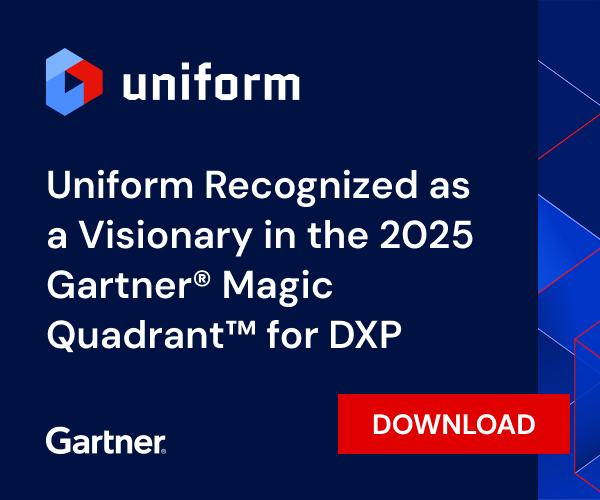Marketing teams face a capability crisis disguised as a technology decision. Traditional vendors force organizations to choose between AI optimization and platform independence. The catch: teams learn vendor-specific workflows rather than transferable optimization principles. When the vendor relationship ends, the organizational capability disappears with it.
The real cost of vendor lock-in shows up in human capital, not licensing fees. Marketing teams trained exclusively on proprietary systems cannot transfer experimentation knowledge to different platforms. Organizations that develop personalization expertise within single-vendor ecosystems lose that expertise when technology decisions change. The capability lives with the vendor, not the organization.
Traditional platforms create this dependency deliberately. Proprietary workflows, vendor-specific terminology, and platform-dependent features ensure teams build expertise that only applies within one ecosystem. Marketing learns how to use the vendor's personalization tool rather than understanding the personalization strategy. Teams master the vendor's A/B testing interface rather than developing experimentation principles. The organization becomes capable only within vendor boundaries.
Uniform addresses this vendor lock-in crisis through two AI tools explicitly designed to build transferable capabilities rather than create new dependencies.
EditMySite enables teams to add AI-optimization capabilities to any existing website with a single script tag. WordPress sites, Drupal installations, custom platforms, and legacy systems—the tool works on 85% of enterprise websites, regardless of the underlying technology. Marketing teams input any URL and gain immediate access to AI-powered optimization without platform replacement or vendor commitment.
Scout is Uniform's conversational AI agent that forces strategic thinking rather than procedural training. Traditional platforms teach teams proprietary workflows, including how to navigate vendor interfaces, where to click in vendor dashboards, and which vendor-specific features enable specific outcomes. Scout eliminates procedural complexity through conversational interaction, requiring teams to explain experimentation strategies, personalization approaches, and optimization workflows in plain language.
The conversational interface cannot execute "click button 3 then select dropdown 7" instructions. Teams must articulate the strategic rationale for their optimization decisions. Five core capabilities emerge through this requirement for explanation rather than procedural execution.
Experimentation thinking develops through hypothesis articulation
When developing
A/B tests, teams describe clear hypotheses, define meaningful audience segments, and specify content variations. The conversational interface demands explanations of which hypotheses merit testing, how to structure experiments to generate insights, and when results justify conclusions.
Traditional vendor training covers interface navigation: finding the testing menu, creating a variant using the vendor template builder, and configuring distribution using the vendor settings panel. Scout conversational interaction focuses on defining testable hypotheses, explaining experiment structure, and specifying success criteria.
Teams discover which hypothesis structures generate actionable insights. Organizations develop institutional knowledge about experiment design. Marketing builds judgment about testing ROI, which informs vendor evaluation rather than relying on vendor guidance about testing capabilities.
Personalization strategy expertise forms through audience definition
Personalization capability develops through explaining audience definitions, visitor classification logic, and content strategy. Scout requires teams to describe which audiences matter, why visitor behavior reveals intent, and how content should adapt per segment.
Traditional platforms teach procedural execution: find the personalization menu, create an audience segment using vendor taxonomy, and configure rules using vendor logic builder. Scout conversational interaction focuses on defining meaningful audience distinctions, explaining classification logic, and specifying content strategy per segment.
Teams discover which segmentation strategies drive engagement. Organizations develop institutional knowledge about visitor classification. Marketing builds judgment about personalization ROI across different audience approaches.
Multilingual operations capability emerges through localization decisions
Translation capability develops through decisions about
localization strategy: which content requires cultural adaptation versus direct translation, how to maintain brand consistency across locales, and when regional variations justify operational complexity. Scout executes translations while teams develop operational judgment.
Conventional training emphasizes feature activation: enable translation service integration, select target languages from the vendor list, and configure workflow using vendor automation rules. Scout conversational interaction focuses on defining localization strategy, explaining adaptation requirements, and specifying consistency standards.
Teams discover which localization approaches maintain brand integrity while enabling regional relevance. Organizations develop institutional knowledge about cultural adaptation requirements. Marketing builds judgment about translation investment priorities.
SEO optimization competency forms through ranking pattern observation
SEO optimization capability develops through observing which optimizations drive improvements in ranking. Teams explain desired outcomes, content principles, and technical requirements. Scout executes optimizations while teams develop strategic understanding.
Traditional vendor training teaches feature configuration: enable SEO tools, apply vendor recommendations, and monitor vendor-specific scores. Scout conversational interaction focuses on defining content strategy, explaining optimization priorities, and specifying technical standards.
Marketing teams build institutional knowledge of search strategy focused on search engine behavior and content principles. Organizations develop patterns of recognition for ranking factors independent of vendor-specific scoring systems.
Technology evaluation capability grows through architectural understanding
The architectural foundation determines whether capabilities transfer or lock in. Uniform's composable approach
integrates 70+ systems across CMS platforms, DAM solutions, CDPs, commerce engines, and analytics tools through open standards and APIs rather than proprietary connectors.
Traditional platforms create vendor lock-in through proprietary integration approaches. Teams learn vendor-specific connection methods, vendor-unique data structures, and vendor-dependent workflows. Uniform's open architecture enables teams to learn integration principles, such as API fundamentals, data mapping approaches, and system orchestration.
Organizations develop judgment about platform architecture and integration approaches. Teams build capability in evaluating vendor assessment criteria that enable sound technology decision-making independent of vendor positioning. Marketing learns which integration patterns enable flexibility rather than which vendor-specific connectors provide which capabilities.
These five capabilities form the foundation for organizational transformation. In Part 2, the examination moves to how these capabilities compound over time to create competitive advantage, the measurable outcomes they deliver across business, marketing, customer experience, and technology dimensions, and how organizations assess whether they are building genuine, vendor-independent expertise or simply shifting dependency to new vendors.
Click here for more information on Uniform’s AI offerings.






.png&w=1080&q=90)
.png&w=1080&q=90)
.png&w=1080&q=90)